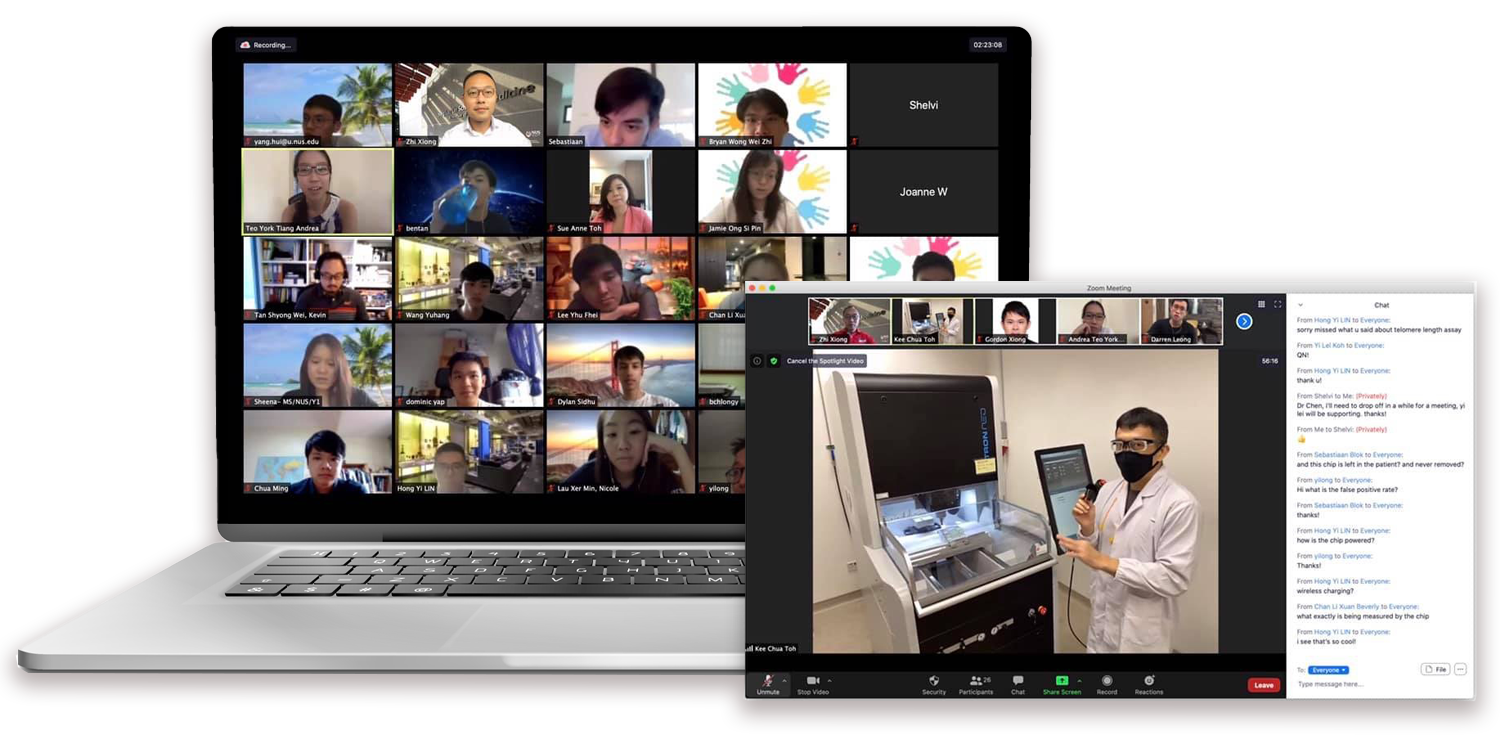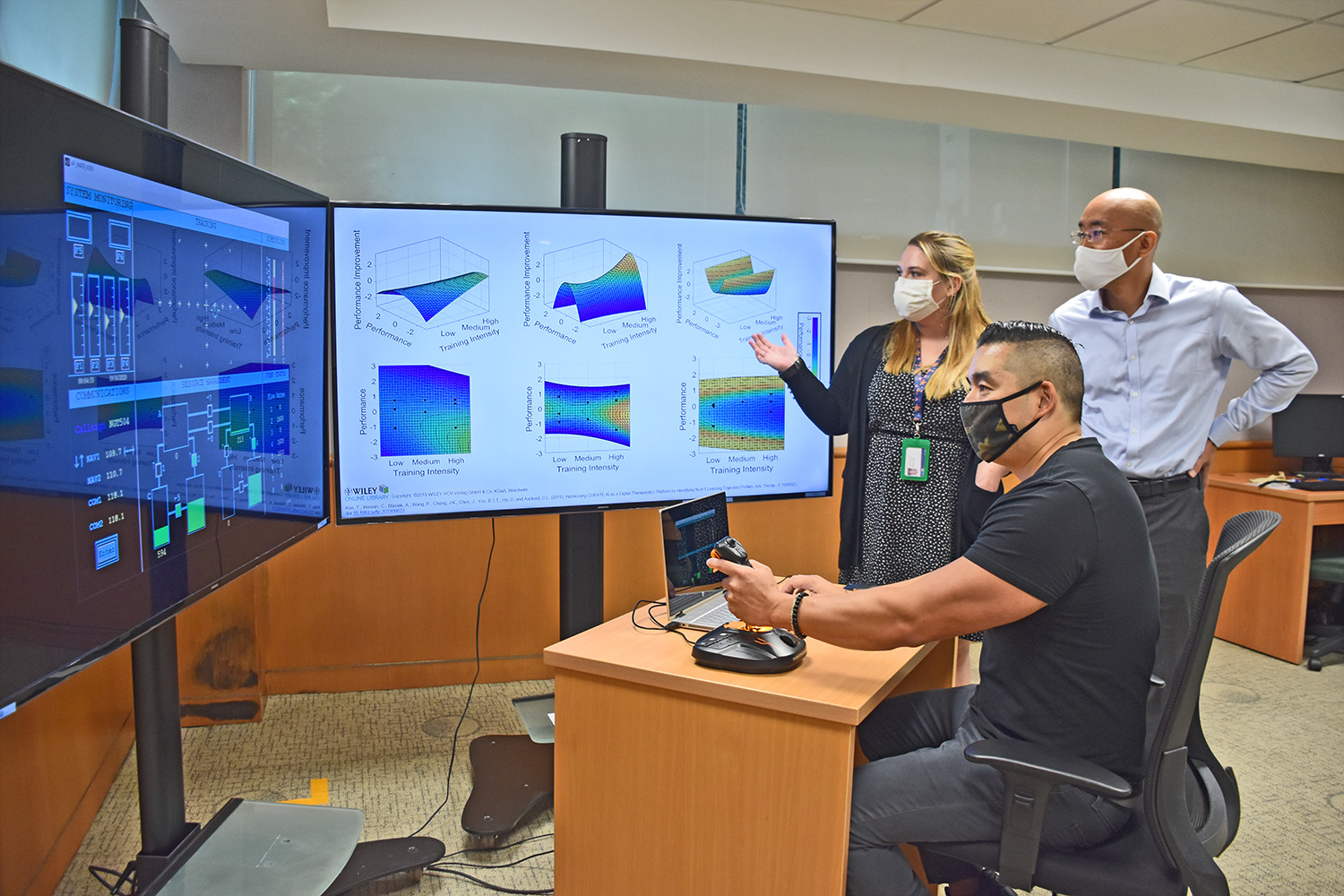
Issue 37 / February 2021
IN VIVO
Mental Gymnastics for ‘Thinking’ Future Doctors

s the ‘logical’ conclusion always the right one? Have you thought about the problems that each solution or innovation might bring? Must something be quantifiable in order to be true? If that is the case, how do we measure the impact of parents on their children?
Who can predict the next pandemic? Could a new course of a disease be projected? What will be the most pressing healthcare need in 10 years’ time? Why do patients reject certain medical devices and interventions despite the best science and design behind them?
Traditional medical and surgical competencies will no longer be sufficient to deal with the complexity of future healthcare problems, individual or global. The ability to inquire astutely, think laterally and make deft metacognitive jumps between disparate information dots will be a skill that any motivated workforce will need, to remain nimble and agile by 20221. COVID-19 has greatly accelerated the need to acquire this skill. In relation to this, traits like complex information processing and problem-solving, reasoning and ideation, systems analysis and evaluation, cognitive adaptability and social-cultural-emotional intelligence are of particular importance1.
Against the backdrop of a sector with traditionally low adaptability and agility like healthcare, the need to acquire this skill among the healthcare workforce becomes even more critical2.
In response, the NUS Medicine conceptualised and developed the Inquiry & Thinking Pathway. This is an initiative that aims to inspire students to be curious while accustomising them to various thinking methods and reasoning approaches that challenge their existing worldviews and instil a love for inquiry.
Broadly, the pathway is divided into three themes—Purpose, Paradigm and Process. Piloted at an inaugural summer school, this pathway saw Phase II, III and IV students participating from March to July 2020.
Did You Know?
iHealthtech researchers come from multidisciplinary backgrounds—from engineering to medicine and other science specialties—to work collaboratively on health technology to address current critical clinical needs in the areas of precision medicine, smart sensors and artificial intelligence (AI), mental health and ageing, and microbiome.
iHealthtech seeks to:
Identify
critical clinical unmet needs and challenges
Innovate
health solutions and technologies
Incubate
to bring health technologies from bench to bedside
Impact
patients, doctors and society
Phase II students went through an intensive two-week programme where they had 17 faculty members taking them through topics such as complexity and systems thinking, evidence-based medicine, moral dilemmas, evolving disease patterns, paradigms and methodologies and how to ask good questions. During these two weeks, participants went on a virtual tour of Institute for Health Innovation & Technology (iHealthtech), discussed difficult topics, and worked in teams to develop a project proposal in tandem, using the skills and techniques they learned, to answer a question of interest relating to health and medicine.

Left: A Summer School that ‘Zoom’ed by in two weeks. Right: Our iHealthtech guide ‘e-inspiring’ our students.
From the horse’s mouth
Li Yuqian (Phase II, Class of 2024)
“The Inquiry & Thinking Pathway Summer School was a great opportunity for us to learn what research is all about and the different types of research that are ongoing. We came into this programme with an open mind and we took away more insights than we expected. The professors conducting each segment of the lecture series were extremely willing to share about their experiences in the research field and it was amazing to see how these professors were able to manage intensive research together with their clinical work.
The goal at the end of this two-week programme was for every group to draft a proposal and present it to a panel of professors. Thus, we were introduced to a variety of databases that we were previously unaware of. For example, we discovered PubMed and were surprised by how easy it is to retrieve research papers from the large database. More importantly, we realised that many professors started off their research based on the fact that they noticed a problem in the current approach and were actively seeking a solution to better the lives of their patients. This in itself is extremely inspiring.
As the summer school occurred in the middle of our vacation, many of us had other various commitments. Personally, it wasn’t an easy two weeks trying to juggle COVID-19 management work at my MOH internship, introduce incoming Phase I students to the School during MediCamp and keep up with the curriculum in the summer school. Despite being very exhausted at the end of it, I felt a great sense of accomplishment.
Overall, we are extremely thankful to the professors who took time out of their busy schedules to share their passion with us and guide us in our process of crafting a good research proposal. It was a meaningful two weeks well-spent and hopefully, the juniors will get the opportunity to participate in this summer school.”
Sebaastian Zhiyong Blok (Phase II, Class of 2024)
“The Inquiry & Thinking Pathway Summer School was a fantastic experience that supplied me with a coherent research framework, priming me to develop myself as an all-rounded thinker and inquirer. Modules taught me to ask the right questions, given the modern academic milieu. Especially insightful were the lessons that steered me in the pursuit of purpose in academia: why do we perform research, and how do we ask the appropriate questions? Additionally, I was equipped with the basic skills in seeing through research: how do we go about answering these questions?
The summer school has incited in me a great desire to continue on my inchoate journey as a keen observer, who doesn’t hesitate to scrutinise the world around him. It is truly a worthwhile experience, and opens doors as a researcher. Moreover, it is a wonderful opportunity to spend time with friends, and to build lasting friendships. Frantically chasing deadlines late into the night (and early morning) with friends develops a sense of camaraderie; this is especially so if you end up producing a research proposal which has real potential to come to fruition. Thank you Yang Hui and Beverly for making my summer school such an awesome experience!”
-
Future of Jobs Survey 2018, World Economic Forum.
-
McKinsey Global Institute workforce skills executive survey, March 2018; McKinsey Global Institute analysis.




